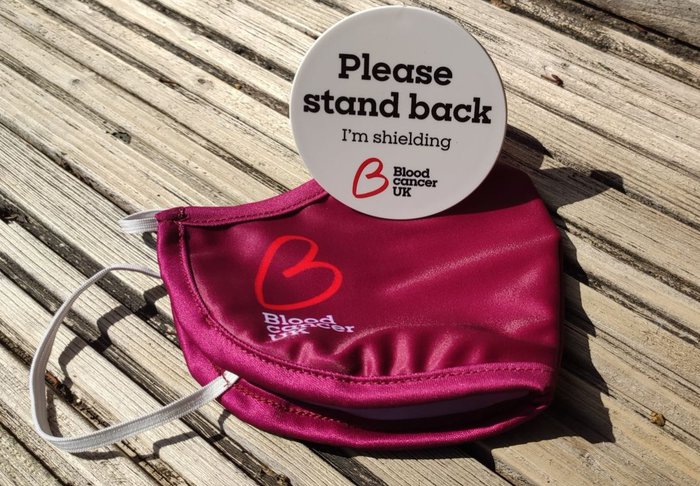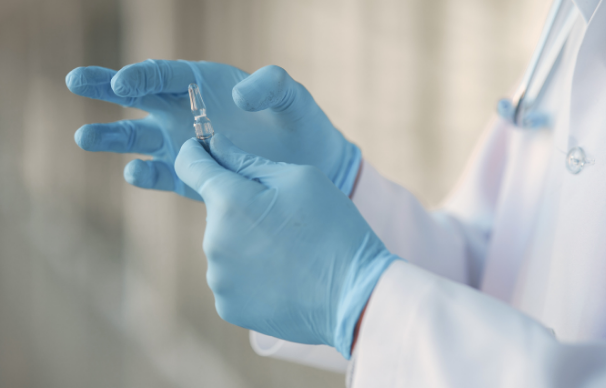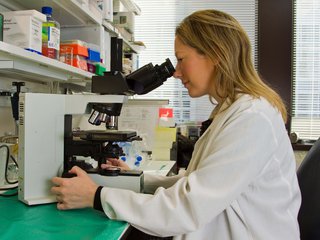Survey highlights forgotten pandemic victims
As the country as a whole returns to normal, a quarter of people with blood cancer remain anxious about leaving their homes. We're calling for the Government to make Evusheld, a preventative treatment, available for those who’ve not seen a good response to the vaccines.
Please note: Evusheld is no longer available in the UK through the NHS or privately, as it was not proven to work against current and future covid variants. Here's a link to our latest information on covid vaccines and treatments.

Blood Cancer UK Shielding badge and mask
Results of our survey show that many in the blood cancer community remain anxious of covid and continue to shield from normal day to day life.
Almost a quarter (23%) of people with blood cancer are still so concerned about Covid that they are only leaving home for essential trips, while over a third are avoiding meeting people unless they have to and staying away from indoor places such as restaurants and shops, according to our new survey.
The survey of 779 people with blood cancer shows that 82% of them are still anxious about Covid. This reflects the fact that people with blood cancer have weakened immune systems that mean Covid is particularly dangerous for them, and that the Covid vaccines are less likely to work well for them.
“This survey shows that many, many people with blood cancer do not yet feel safe to start getting back to normal, and so are being left behind as the forgotten victims of the pandemic."
We've warned the results show that while the country as a whole has returned to normal, many thousands of people with blood cancer have been left behind. We're calling for the Government to make available Evusheld (a preventative treatment that acts as an alternative to vaccination) for those who have not mounted a good immune response to the vaccines. Evusheld has already been approved by the MHRA and is already available in other countries, but the Government has yet to confirm whether it plans to buy it for immunocompromised people in the UK.
The survey also suggests just 35% of people with blood cancer think they have had Covid so far, a much lower proportion than in the general population, which is likely to be because many of them have spent the last two years avoiding social contact. Yet despite many of them continuing to shield, recent Office of National Statistics data showed that almost 4,000 people with blood cancer in England and Wales have died of Covid. This is well over one in 100 of them.
The survey also suggests that just a quarter (26%) of respondents have had the five vaccine doses that everyone with blood cancer should have had by now, once again highlighting the significant problems rolling out the vaccines to immunocompromised people.

Scientist holding vaccine
Gemma Peters, Chief Executive of Blood Cancer UK, said:
“This survey shows that many, many people with blood cancer do not yet feel safe to start getting back to normal, and so are being left behind as the forgotten victims of the pandemic."
“The number of people with blood cancer who have died of Covid is shockingly high, and we also know that the effort to avoid coming into contact with the virus has had a huge mental health impact. While it is completely understandable that the country is now getting back to normal life after a horrible two years, this return to normality needs to be accompanied by much more support for those who are still vulnerable to Covid.”
“The Government should offer Evusheld to those people who have not had a good immune response to the vaccines. Evusheld can play an important role in protecting people with blood cancer and helping them get their freedom back. The Government has previously committed to do everything it can to supporting the vulnerable through the pandemic, and so it makes no sense that Evusheld is available for immunocompromised people in countries such as the United States and Israel, but is not available for immunocompromised people here. The Government also needs to be more transparent about its rationale on Evusheld as many people with blood cancer see it is as an important treatment and are not being given a clear answer on why it is not yet available to them.”

Coronavirus and blood cancer
Coronavirus information for people affected by leukaemia, lymphoma, myeloma or any blood cancer.
